
As the new academic year approaches, working out the right digital productivity workflow that best suits your needs is now more important than ever. There’s so many different apps to choose from these days that it might be daunting, but this guide is here to help.
Having developed our own productivity app, we’ve had the opportunity to explore almost every tool students utilize to enhance their studying and organizational skills. Here’s our top ten picks to help you stay ahead before the summer break comes to a close:
1. Supernotes - Power up Your Note-Taking
Are your lecture notes been drowned in a sea of Google Docs, Notion pages, or Notes app entries? Trying to write that essay but can’t find that one point you thought of while doing your readings? Then you’d really benefit from using Supernotes.
Instead of relying on files and folders that make you do the heavy lifting and organising, Supernotes is built around notecards – which are themselves taggable, linkable and shareable. This makes it unbelievably easy to quickly expand on course materials, link concepts and themes together for that essay you have to write. This helps build amazing visual graphs of your notes, so you can see how everything fits together.

Supernotes works on all your devices, visualise your notes in a Graph View
Supernotes is also blazingly fast and works on all your devices, so if you forgot something, you can whip out your phone (or any other device) and find it in a second (we’re serious). You can even add your friends or classmates on Supernotes, so you can collaborate in lectures and send cards to each other in real time. We call it social note-taking, the addictive bits of a social network combined with the productive bits of a note-taking app.
And don’t just take our word for it. Students studying degrees such as medicine, engineering, and psychology rely on Supernotes every day.
- Price: Start for free, or £4 a month with the yearly student unlimited
- Supersedes: Apple Notes, OneNote, Evernote, Google Keep
- Killer Feature: The unique card format allows effortless organisation of your notes
- Drawback: Higher learning curve than traditional notes apps, but there are no shortcuts to all things worthwhile
2. Daybridge – Categorise Your Life
After lots of time spent looking for the best calendar app, we came to the anticlimactic conclusion that the app native to your phone / laptop is actually the best. This is because the tightly-knit integration on your device is pretty unbeatable.
However, there’s a promising new Calendar app in development, Daybridge, which aims to let you make time for what matters – you can sign up and give it a go here.
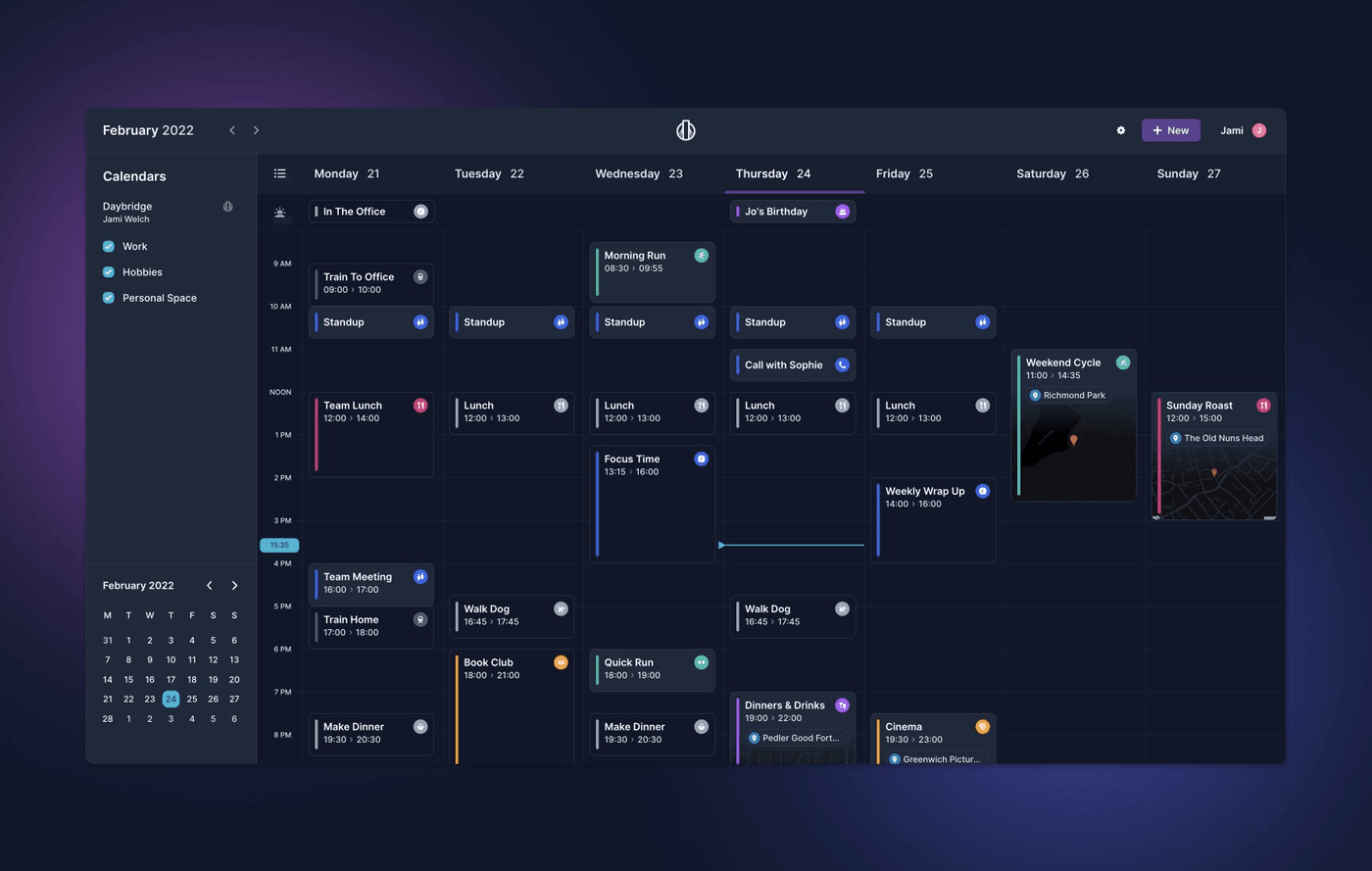
Daybridge, the upcoming calendar app
Daybridge plans to sync with all your existing calendars and assign them to “areas” of your life, so you can easily see what’s coming up in your personal, work, and study life. It’s a great way to keep track of your deadlines, lectures, and social events all in one place.
- Price: Free (TBA)
- Supersedes: Monday, Outlook Calendar, Any.do
- Killer Feature: Ability to categorise events, which lets us distinguish the different parts of our multifaceted lives.
- Drawback: Daybridge is currently still in development, and will be launched soon!
3. Texts – All Your Messages in One Inbox
Trying to keep up with conversations across various platforms but can’t find that one important text? Lost in all the notifications and need help prioritising which ones to reply to? You might like Texts.
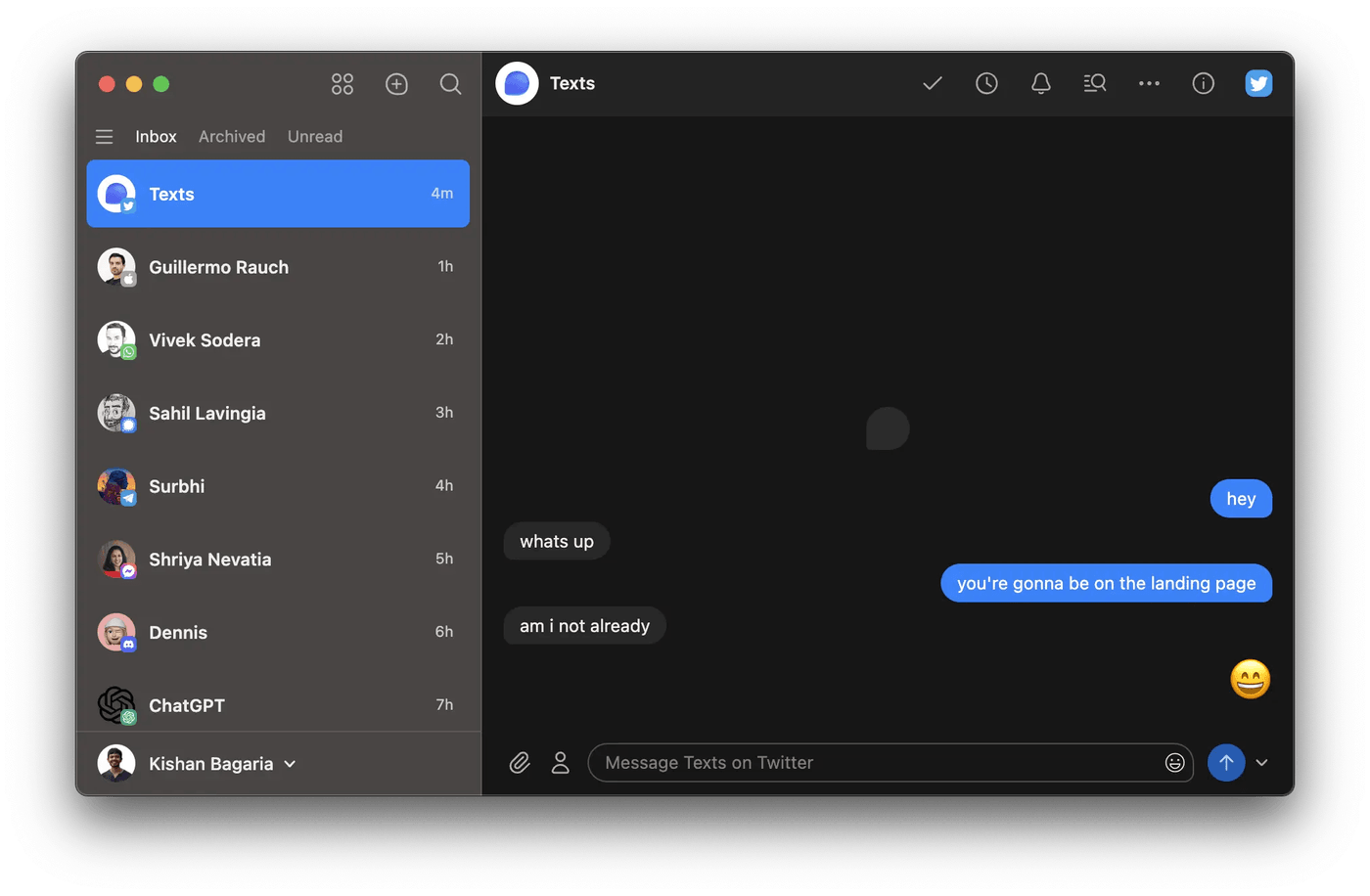
Instead of relying on multiple messaging apps that make you do the heavy lifting and organising, Texts consolidates all your messages into one inbox. This makes it unbelievably easy to keep track of conversations, say goodbye to that monthly “Just saw this! I’m so sorry for the late reply!” text to a friend or acquaintance.
- Price: Free for you to link 10 accounts and paid to unlock more features.
- Supersedes: Using WhatsApp, Messenger, iMessage, Instagram DMs separately.
- Killer Feature: Consolidated inbox that effortlessly organises all your messages.
- Drawback: A slight learning curve to get used to the unified interface.
4. Opal – Remove Pesky Distractions
If you’re easily distracted by your phone and have a high Screen Time (don’t worry, we’ve all been there!), Opal is a focus app (similar to Forest), which we love because it lets you grow a beautiful gem the more time you spend being productive. Talk about a win-win solution.
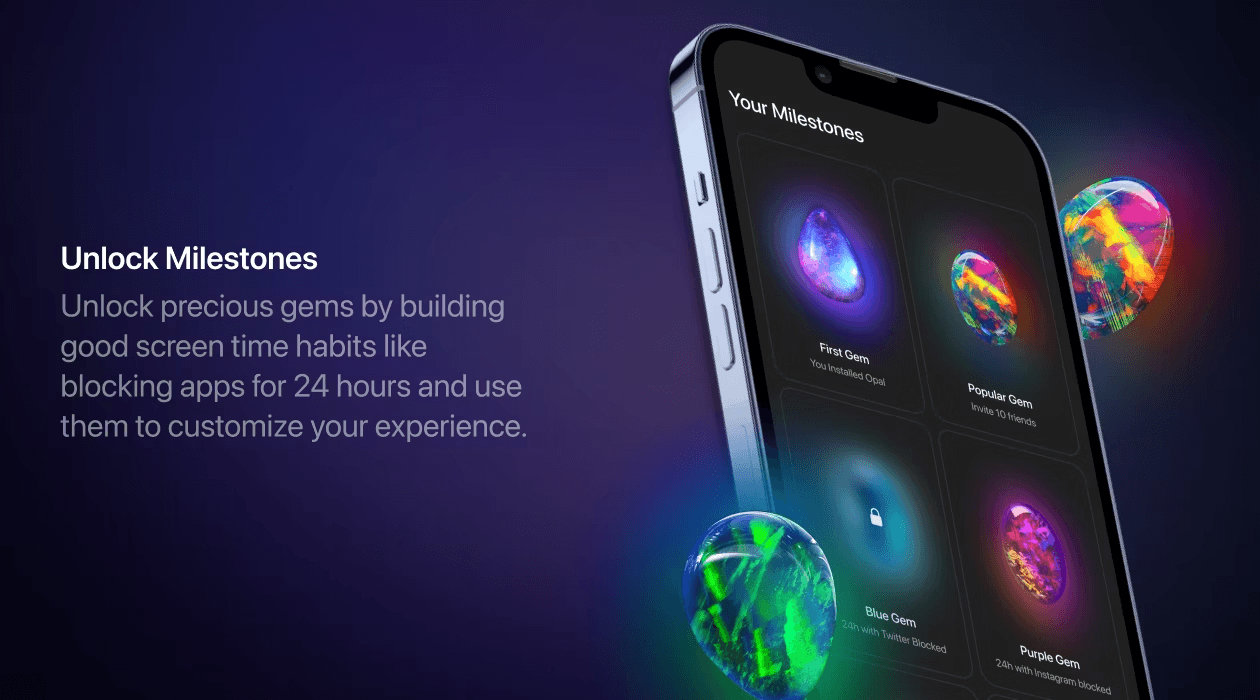
Opal gamifies focusing
We particularly liked how it gamifies focusing, and the more you focus, the more your gem grows. It’s a great way to keep track of your productivity and see how much time you’re spending on your phone.
- Price: Free with premium features available at $9.99 per month
- Supersedes: Forest, StayFocusd, Focus@Will
- Killer Feature: Real-time blocking of apps and websites to remove distractions.
- Drawback: Requires consistent use and setup for maximum benefit, but the long-term productivity gains are worth it.
5. Arc Browser – A New Way to Explore the Web
As you can probably tell, we’re big fans of apps that help you stay organised. Arc Browser is designed to streamline your browsing experience.
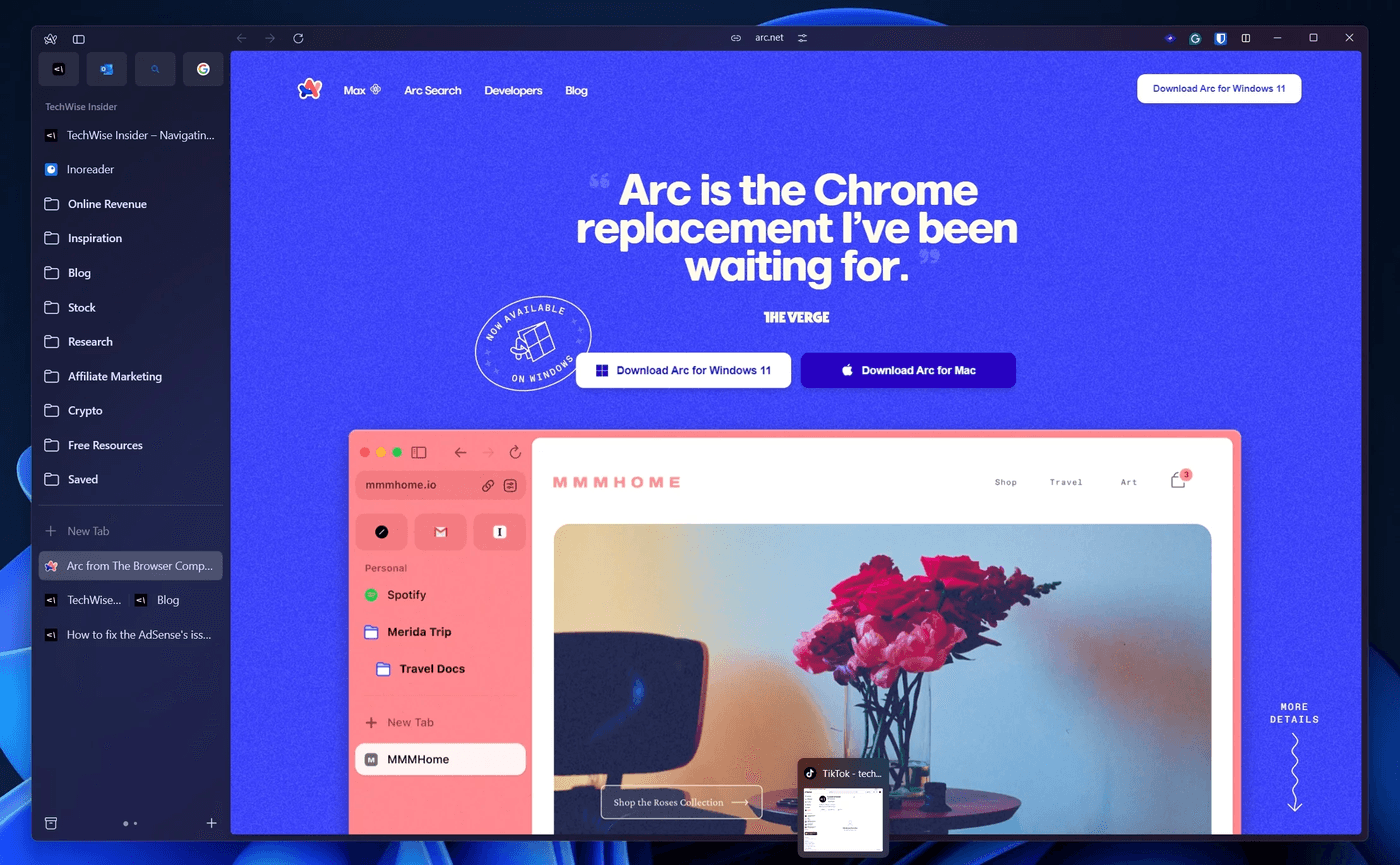
A screenshot of Arc Browser on Windows
We like their Multiple Profiles feature, which lets users switch seamlessly between profiles for student and personal use, keeping your tasks and activities separate. Their Beautifully Designed Sidebar also lets you customise your tabs, bookmarks, and tools.
- Price: Free with paid premium features
- Supersedes: Chrome, Firefox, Safari
- Killer Feature: Multiple Profiles for different tasks
- Drawback: Can be a bit buggy at times and drains battery life, but the developers are constantly working on updates.
6. Discord – Level up your Communication
We know Discord has a reputation to be used among gamers and tech-savvy people – and that’s exactly why we recommend it. They know the importance of speed and efficiency more than anyone.
Instead of using WhatsApp groups, switch to Discord to quickly chat with friends about assignments, get on fast video calls, or send each other loads of PDFs, slides, and files. WhatsApp groups are a thing of the past. Set up a Discord group with your course.
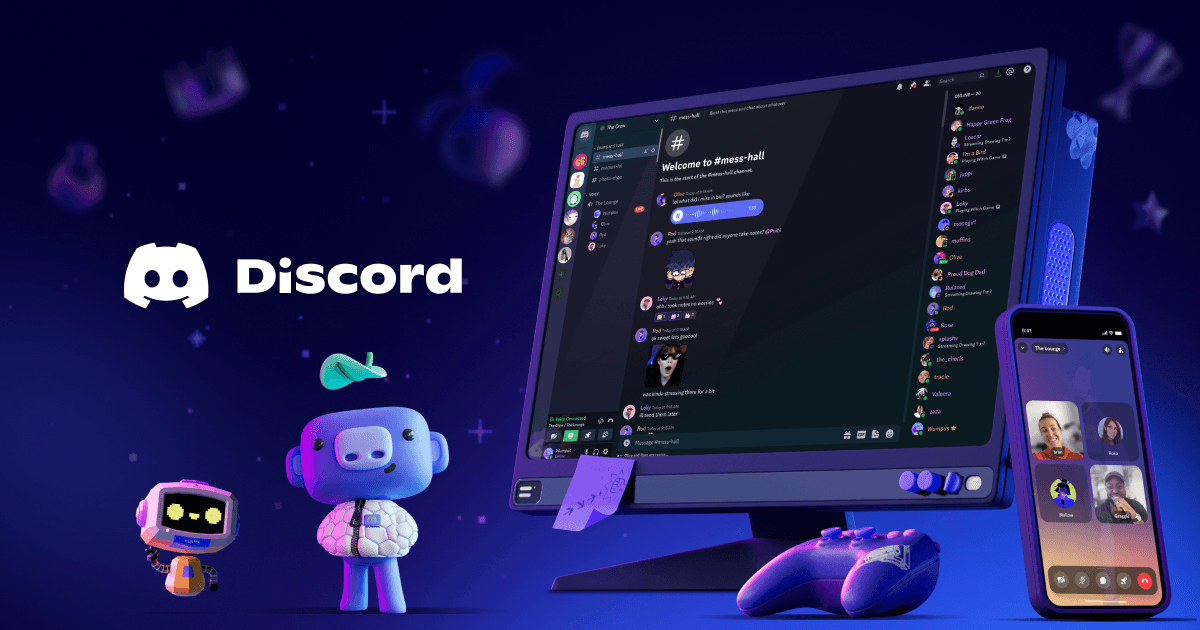
Discord, the communication app for students
We even wrote a cheatsheet so you can get used to using Discord as fast as possible.
- Price: Free, with Nitro subscription available at $9.99 per month for enhanced features.
- Supersedes: Slack, Microsoft Teams, WhatsApp groups, Zoom
- Killer Feature: Seamless voice, video, and text communication in organised channels.
- Drawback: Can be overwhelming for new users due to its extensive features, but guides and tutorials are available to help.
7. Things 3 - The Ultimate To-Do List
Things 3 is a beautifully designed to-do list app that helps you keep track of your tasks and deadlines. Its simplicity is its strength, as it’s easy to use and has a clean interface, although it currently only works on Apple devices.
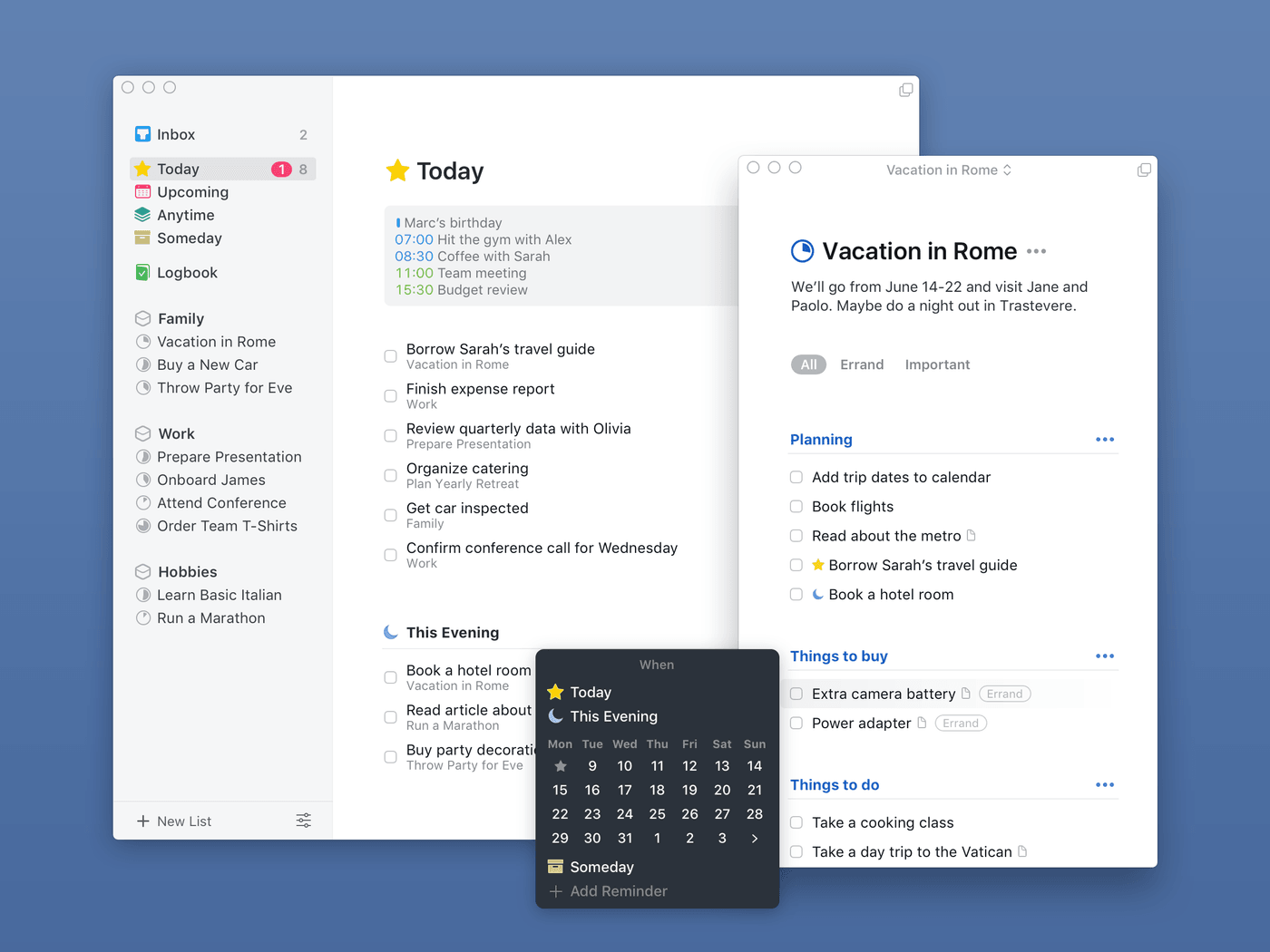
Things 3, the ultimate to-do list app
You can download it here on your iPhone, iPad, and Mac. If you’re using Windows or Android, you might want to look at Todoist instead.
- Price: $9.99 for iOS, $49.99 for Mac
- Supersedes: Todoist, Any.do, Microsoft To-Do
- Killer Feature: Beautiful design and intuitive interface
- Drawback: It’s simplicity can be a double-edged sword, as it lacks some advanced features found in other to-do list apps
8. Sleep Cycle – Get Better Quality Sleep
We know how all-nighters are the stuff the university experience is made of, but trust us when we say that having a good sleeping schedule makes all the difference. Our bodies need rest and recharge to form new connections and to prepare our brains to absorb more information the next day. Sleep tracking apps like Sleep Cycle use audio tracking to help you understand how to reset your sleep schedule, and find the routine most optimal for you.
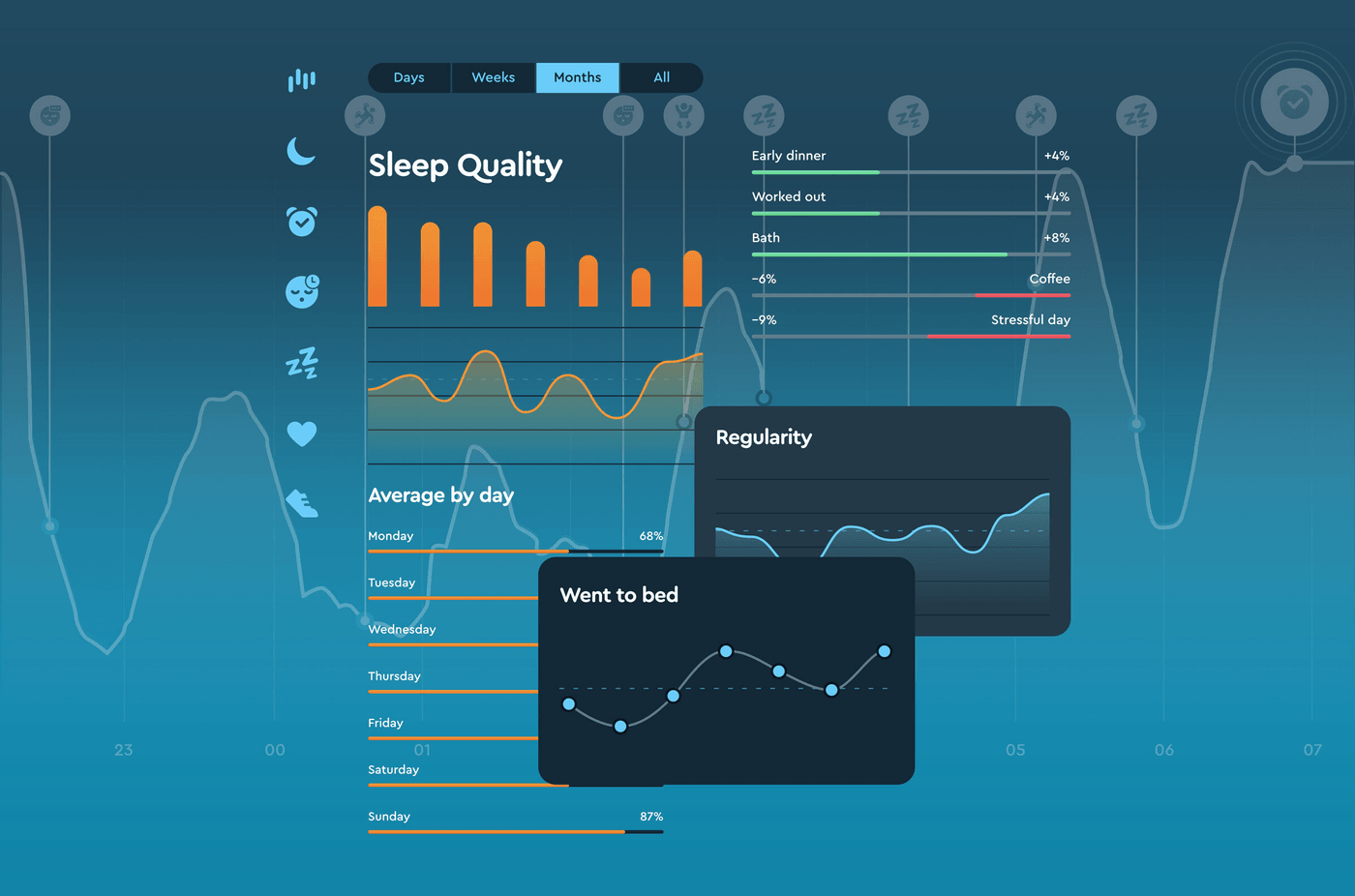
Sleep Cycle, the sleep tracking app
The best thing about Sleep Cycle is that it wakes you up during the lightest sleep phase, so you wake up feeling refreshed and ready to tackle the day.
- Price: Free, with paid premium features available.
- Supersedes: Relying on your Alarm Clock
- Killer Feature: Smart alarm that wakes you up during the lightest sleep phase for a more refreshed morning.
- Drawback: Requires your phone to be near your bed, but the improved sleep insights are worth it.
9. Raycast – Supercharge Your Spotlight
Imagine if the Command + Space keyboard shortcut (for Mac users) is even more powerful and lets you search through everything on your laptop – all your apps, files, and even lets you run custom scripts.
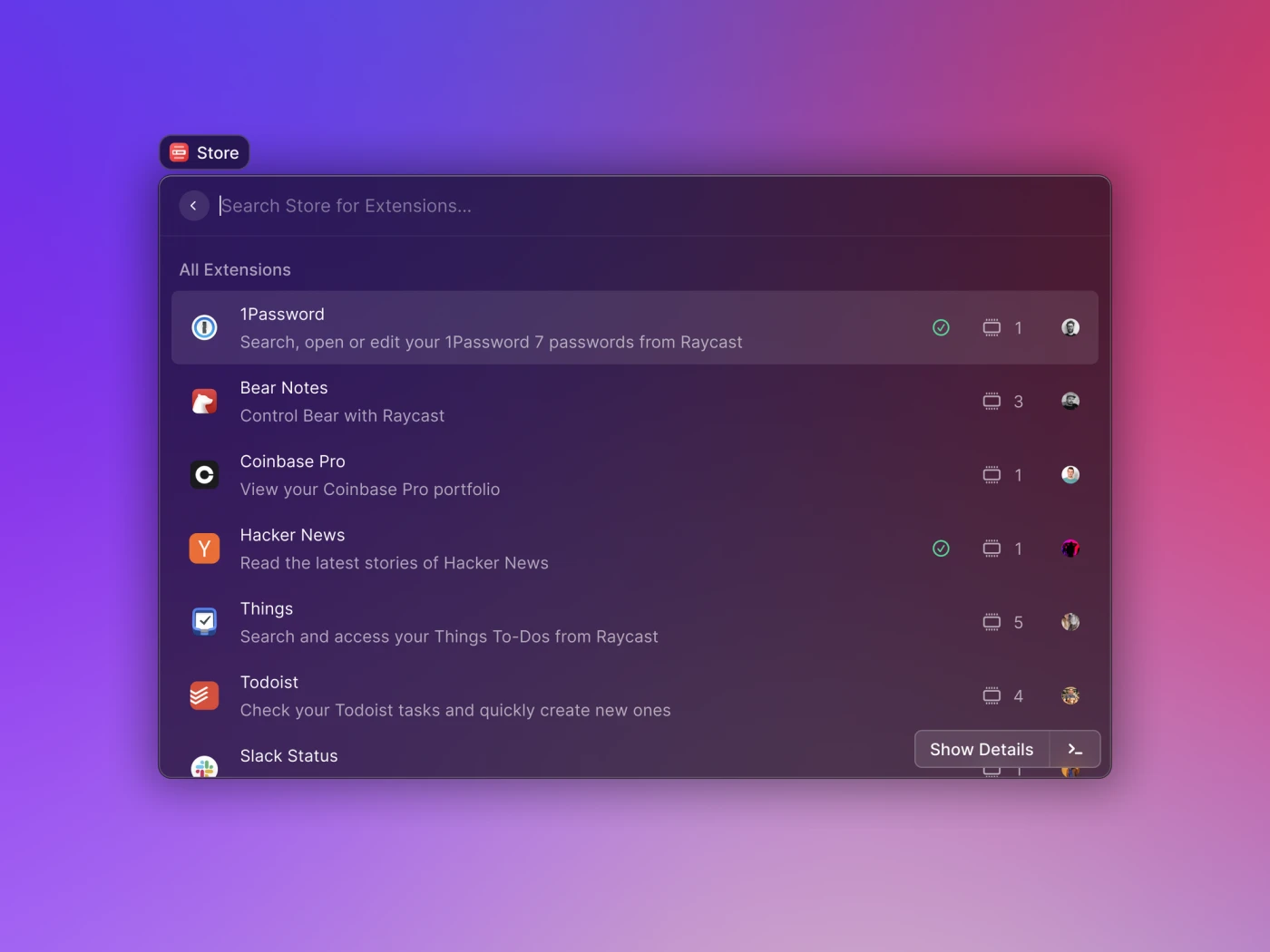
Add extensions to Raycast to supercharge your productivity
Raycast is also blazingly fast and highly customisable, allowing you to create your own commands and workflows. Plus, it supports collaboration, so you can share your commands and workflows with your team, enhancing productivity and teamwork.
- Price: Free
- Supersedes: Spotlight, LaunchBar, Alfred
- Killer Feature: Customisable commands and workflows for personalised productivity
- Drawback: It may take some time to learn all the features, but the productivity boost is well worth the effort.
10. 1Password – Secure Your Digital Life
Cybersecurity may not be on the top of everyone’s minds, but your data at university is important! Password managers like 1Password allow you to keep track of all your passwords, so you can finally generate unique passwords for each platform and stop worrying about even the chance of getting hacked and losing your important data.
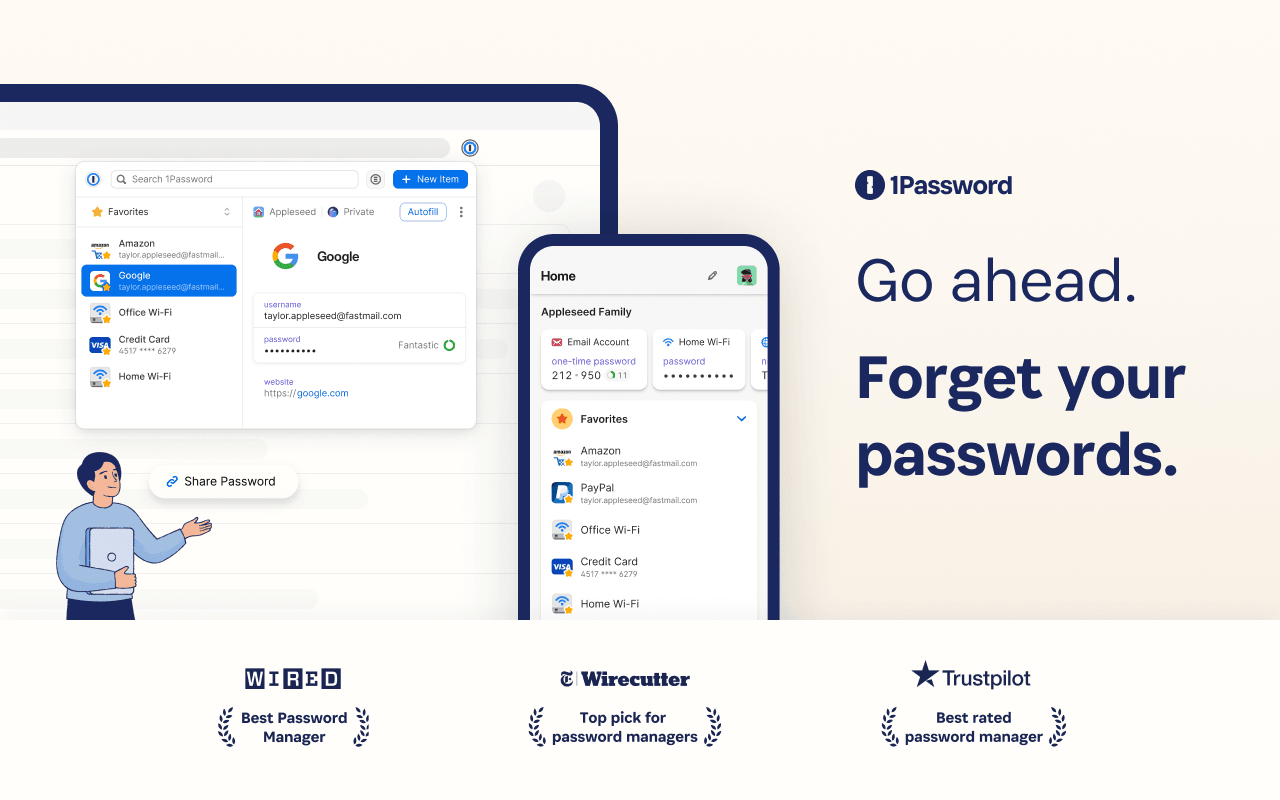
Install 1Password to keep your passwords secure on all your devices
1Password also has a feature that lets you share passwords with your friends and family, so you can easily share your Netflix password with your housemates without compromising your other accounts.
- Price: $2.99 per month for individuals, with discounts for students and families
- Supersedes: Writing down your passwords on a sticky note (don’t do that!)
- Killer Feature: Secure password storage and generation
- Drawback: You need to remember one master password, but that’s a small price to pay for security
So that’s our Top 10 productivity apps for students. Still want to find out some more, including ones for medication? Then check out Francesco from Keep Productive’s favourite student apps from a little while ago for some more inspiration. You can also stay tuned on X (or Mastodon 👀) for more study inspo and productivity hacks.

Take notes effortlessly
Join thousands of happy notetakers!